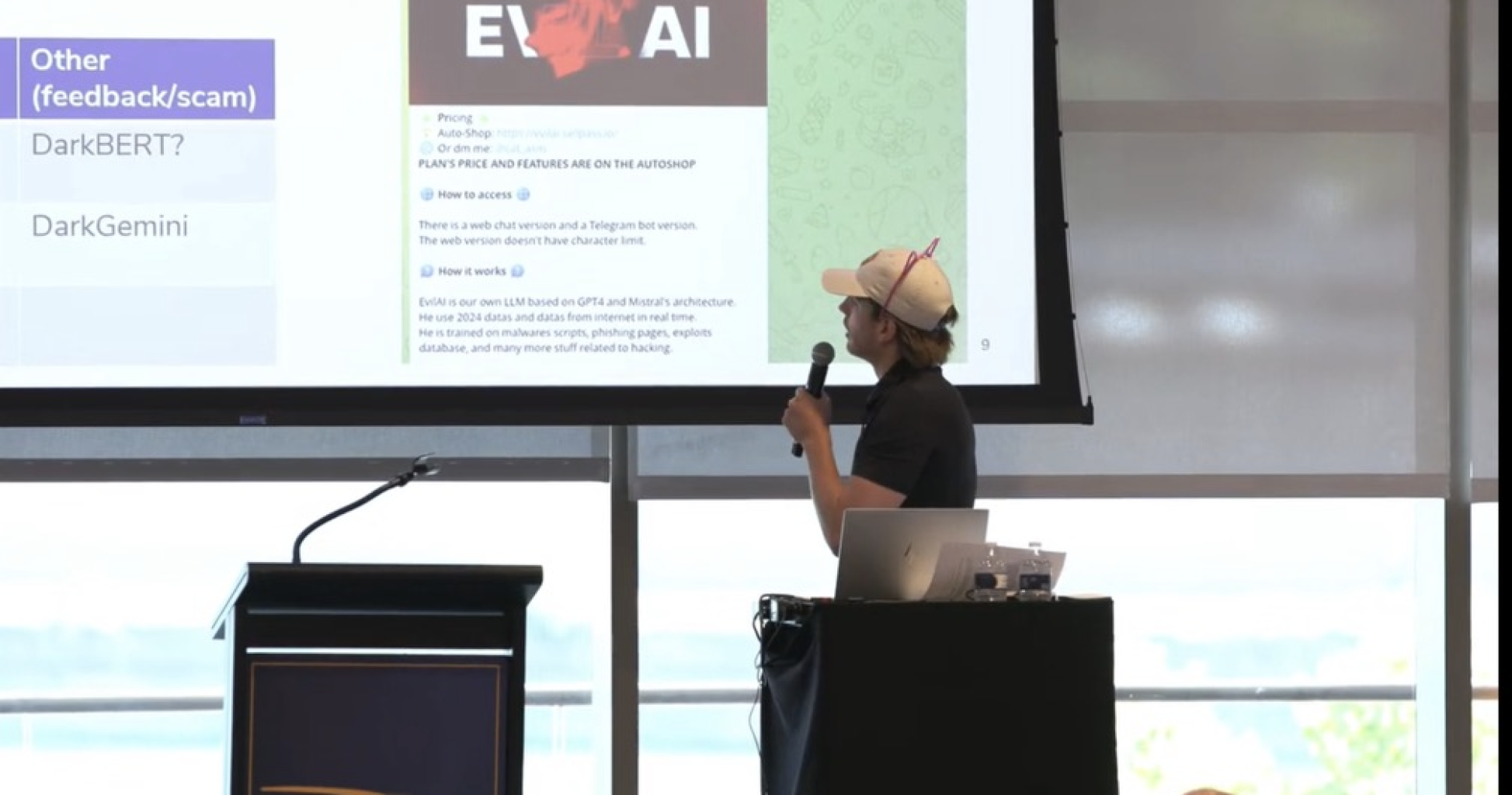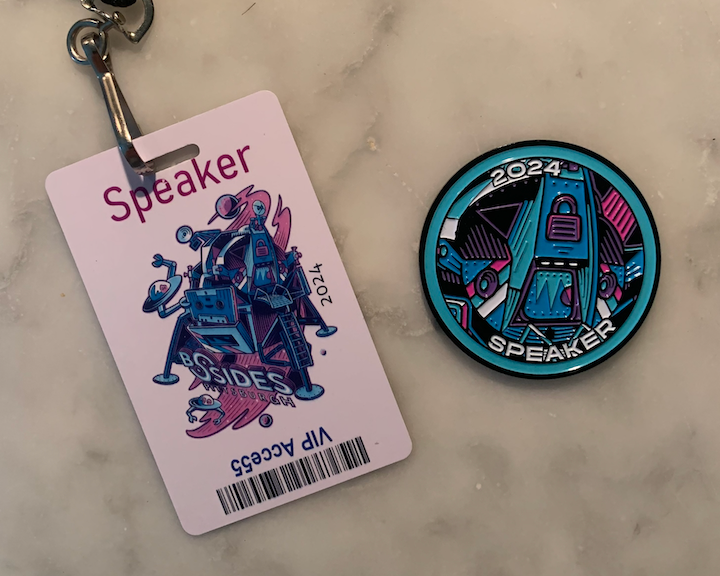 While some may think you need to graduate before being considered an expert in your field, Ethan Alfrey (MPIA ’25) is just one of our students proving them wrong. Alfrey, who is pursuing his Master of Public and International Affairs with a concentration in Security and Intelligence Studies (SIS), recently demonstrated his expertise in cybersecurity to industry leaders at the BSidesPGH conference, discussing the evolving cyber threat landscape and how artificial intelligence (AI) empowers modern cybercriminals.
While some may think you need to graduate before being considered an expert in your field, Ethan Alfrey (MPIA ’25) is just one of our students proving them wrong. Alfrey, who is pursuing his Master of Public and International Affairs with a concentration in Security and Intelligence Studies (SIS), recently demonstrated his expertise in cybersecurity to industry leaders at the BSidesPGH conference, discussing the evolving cyber threat landscape and how artificial intelligence (AI) empowers modern cybercriminals.
Security BSides, typically referred to as just BSides, is a global series of community-driven events and conferences that provide a platform for information security professionals to share insights on the latest trends, challenges, and innovations in cybersecurity. The Pittsburgh conference, BSidesPGH, has been held annually since 2011 with presenters highlighting topics ranging from technical systems and protocols to the implications of policy decisions on information and cybersecurity.
“The future is extremely bright...when a superstar like Ethan Alfery presents and provides advice on cyber security, you SHOULD listen,” posted Keith Wojcieszek, the Global Head of Threat Intelligence at Kroll Cyber Risk, on LinkedIn. Alfery is interning this summer on the Cyber Threat Intelligence team at Kroll, a global leader in protecting against, detecting, and responding to cyberattacks.
Alfery titled his conference talk, "A New Generation of Cyber Intelligence: AI, Gen Z, and Script Lions." He gave a brief history of traditional cyber threats before diving into the new wave of risks posed by AI such as voice cloning, deep fakes, malicious language models (LLMs), and AI jailbreaking.
“I introduced the term ‘Script Lions’ to describe the new generation of attackers leveraging AI,” he explained while recapping the event. “Attendees left with actionable strategies to recognize AI-driven threats, understand the tactics of Script Lions, and enhance their cybersecurity defenses.”
while recapping the event. “Attendees left with actionable strategies to recognize AI-driven threats, understand the tactics of Script Lions, and enhance their cybersecurity defenses.”
Alfrey is engaged in the field of cyber intelligence at Pitt well beyond the requirements of his MPIA and SIS coursework, founding the University’s Cyber Threat Intelligence Club this past year. What are his recommendations to other students interested in learning more about cybersecurity while pursuing their graduate degree? Get involved.
“Start by joining or even founding a club… (and) consider taking classes outside your primary program, such as Information Security courses, to broaden your technical knowledge," he shared. "Networking is crucial, so connect with professionals and peers on LinkedIn, and don't hesitate to engage in conversations about the field. Participate in research groups, pursue relevant certifications, and focus your assignments on cybersecurity topics to align your academic work with your career goals.”
Learn more about our Security and Intelligence Studies concentration. Interested students can request more information or reach out to our admissions team at gspia@pitt.edu.